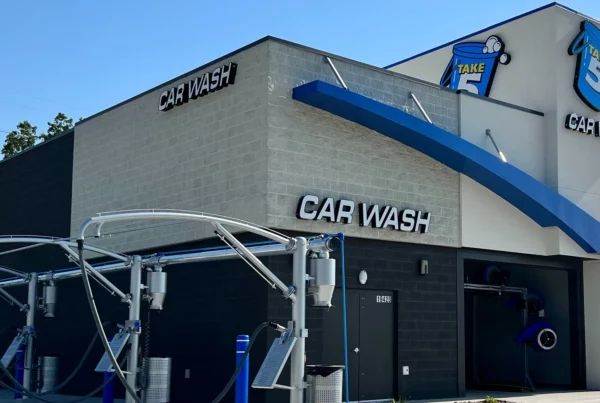We are entering the fourth quarter of 2023 with investment sales velocity down 50% over the same period last year. Valuations are down and owners have been slow to divest their assets. Rates have soared in the past 18 months to unsustainable levels so much so that Signature Bank, one of the premier lenders, went belly-up. Low sales velocity is not sustainable and it’s reaching its tipping point. There are three events that are converging on the multifamily market, seemingly all at once, which will shape the market for years to come: SCOTUS considers CHIP v. HSTPA; the Signature Bank loan portfolio sale; and interest rates peaking. The current lack of clarity on these three major issues is keeping buyers and sellers on the sidelines. Let’s look at why each of these three events will impact the sales velocity in 2024.
SCOTUS Considers CHIP v. HSTPA
It’s hard to believe that it’s been over four years already since HSTPA was passed but we will finally be getting clarity on the lawsuit that was initially filed in July of 2019. On or around September 26th the U.S. Supreme Court will determine whether they will agree to review CHIP v. NYC. This is the moment we’ve been waiting for. SCOTUS only takes on ~2% of the cases that cross their desk each year. However, rent regulation and our housing crisis has been gaining more and more attention on a national level. The conservative packed court has already ruled on guns, abortion, and affirmative action this year, I’m optimistic that housing is next.
Regardless of the outcome on September 26th it will provide clarity for the future of our business and allow people who have been sitting on the sidelines to make investment decisions. If SCOTUS miraculously takes the case this fall, they will likely rule in late spring / early summer 2024. I would imagine that if they take the case, anyone thinking about selling today will be inclined to wait a few more months to hear the results. For sellers who cannot wait, they will likely find themselves in a slightly more favorable position than they are today as buyers will likely bet on a favorable outcome given the court’s recent track record for conservative outcomes. To be clear, if they take the case and vote in our favor that doesn’t mean the rules will be reversed to how they used to be; there will be clarifications which will lead to local politicians editing, compromising, and redrafting HSTPA, not a complete free market eviction free-for-all for landlords. As my friend Shaun Riney said, just because our constitution says we have the right to bear arms, doesn’t mean I can just walk around New York City waving a gun. No matter what happens with SCOTUS, transaction velocity will spike next year as the band-aid will finally be ripped off.
Signature Bank Sale
The FDIC will be launching the sale of the $60 billion Signature Bank loan portfolio in September. A resolution has been in the works since the bank closed in March 2023.
We recently released a fantastic podcast with John Adams, Senior Executive Vice President & President of Commercial Real Estate Lending at NYCB detailing the Signature Bank loan portfolio. You can listen to it here.
One reason that sales velocity has been slow is because rent stabilized buyers have existing loans with Signature and rather than deploy more capital into new assets, they’ve been waiting to see what happens to their existing loans. Why buy more of the same real estate if you might have the opportunity to buy back your own note at a cheap price? Much of the capital sitting on the sidelines is waiting for the opportunity to get a steal of a deal on behalf the US government, and since Signature went under, values have only gone down so the “I’ll just wait” tactic seems to be paying off if you’re a buyer.
Right now, multifamily debt is being quoted at almost 7%. Roughly for illustration purposes let’s say the average signature note pays 4% with two years left on the term. Why is that important? The buyer of the loan portfolio is going to have to be comfortable making a below average return for the next two years. With values down 50%, rents flat for the past four years and expenses that are only ballooning as time goes by, the rent stabilized loan portfolio isn’t exactly la creme de la crème. So, unless the FDIC massively subsidizes the purchase of the portfolio these loans are worth a fraction of face value.
Nonetheless, this package is going to be sold and will trigger a flurry of sales activity in the months following. The buyer of the package will be in communication with the borrowers either working out deals for the keys, mutually agreeable plans to get the building on the market and sold, or to get refinanced out by either another bank or the borrower themselves. Once the loan sales clear, other banks will know the value of their own outstanding loan portfolio, and the lending market will reset as the industry implements new underwriting standards to balance out their books moving forward. As Warren Buffett said: the value of real estate mainly depends on how much non-recourse financing you can get.
Interest Rates May Have Peaked – No One Knows What To Do
Deals that were done at 3% two to four years ago are now being quoted at over 6%. There are billions of dollars of cheap debt coming due in the next two years and no one knows how to handle it. I had a client tell me his lender started a foreclosure to which he subsequently called the bank and said save yourself the time and money – here are the keys. The bank said no! Why? Because they don’t actually know what to do – they still have their head in the sand and that’s their way of buying time. Lenders don’t want the keys any more than the borrowers do but Powell’s last speech gave the inclination that rates may have peaked. The Fed’s dot plot indicates that our rates will come down over the next two years. I heard that a client stopped paying his mortgage and the bank called him from a position of strength and asked the borrower: what’s your plan? The borrower laughed and replied: what’s your plan!
As I noted in my October 2022 article, the banks will be the one holding the bag and Signature Bank was the canary in the coal mine. The banking industry is in a difficult position if rates don’t come down considerably in the next two years. Consider the doom loop that started during COVID in America’s cities. A doom loop is a cycle that cannot reverse itself. Here’s how it works: COVID strikes, offices empty, rents plumet, tenants vacate and shop around for cheaper rents, tax assessments decline creating budget deficits and reductions in essential services which brings us back around the loop to more tenants leaving, and down and around we go. The banking version goes like this: losses on loans trigger banks to cut lending which leads to further value deterioration reverberating across the market. Regional banks get squeezed and go under, deposit holders get scared and put their money in the largest banks leading to even further industry consolidation. It’s a hard cycle to break.
Fast forward to January 1st, 2024, and we could be in a world where the SBNY portfolio is sold, SCOTUS takes on (or doesn’t) HSTPA and the Fed tells us they will start to lower rates. This makes me realize how cloudy our vision is today and why people can’t make investment decisions. Regardless of each outcome the important thing to note is that we will have clarity, and with clarity people can make decisions even if they don’t like their choices. Normally death, divorce and taxes are leading motivations for sales, but after the three events I just outlined get flushed through the system and people get clarity on what they own, compliance will become the number one reason people sell New York City multifamily buildings in 2024.
Get ready for a big 2024…




